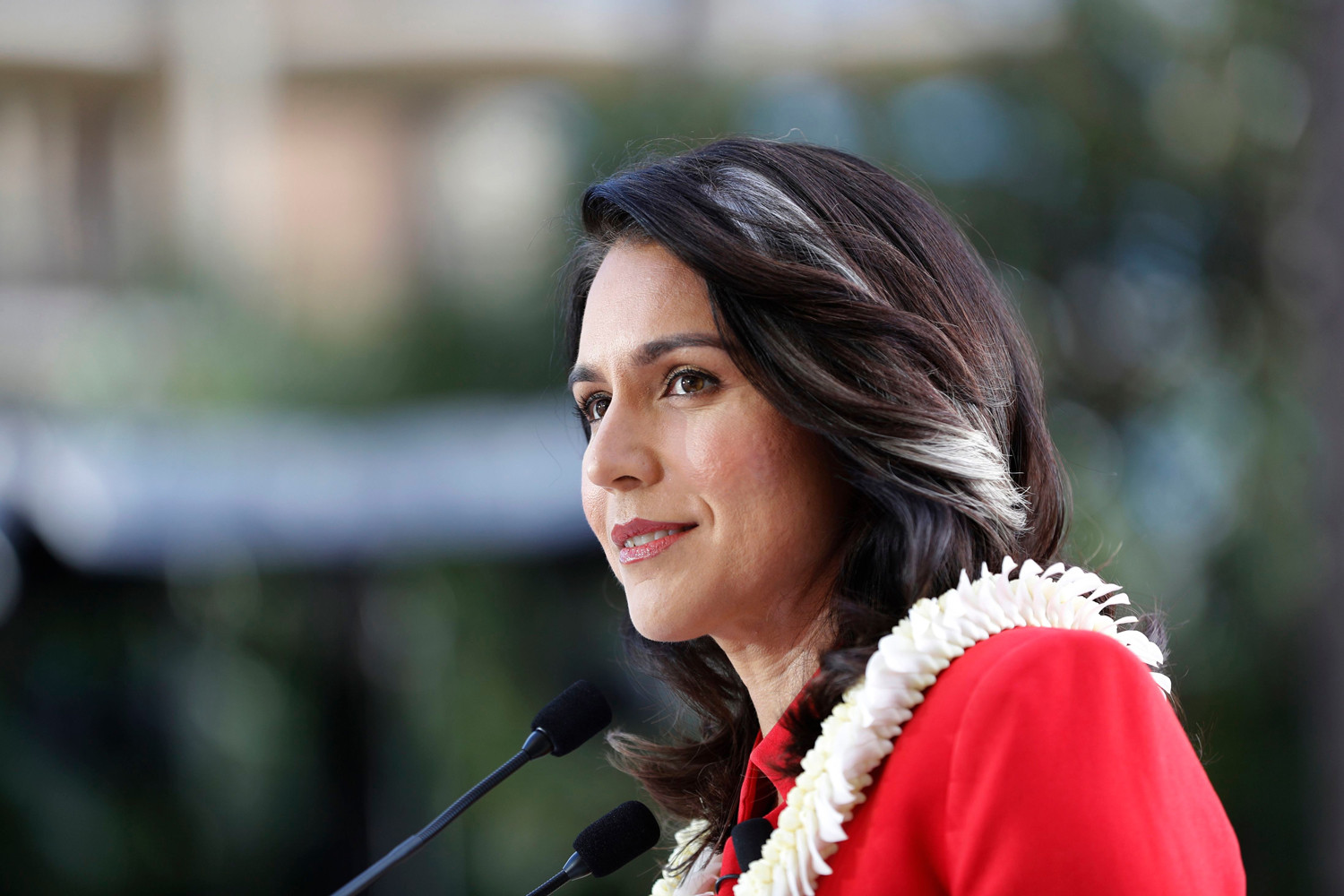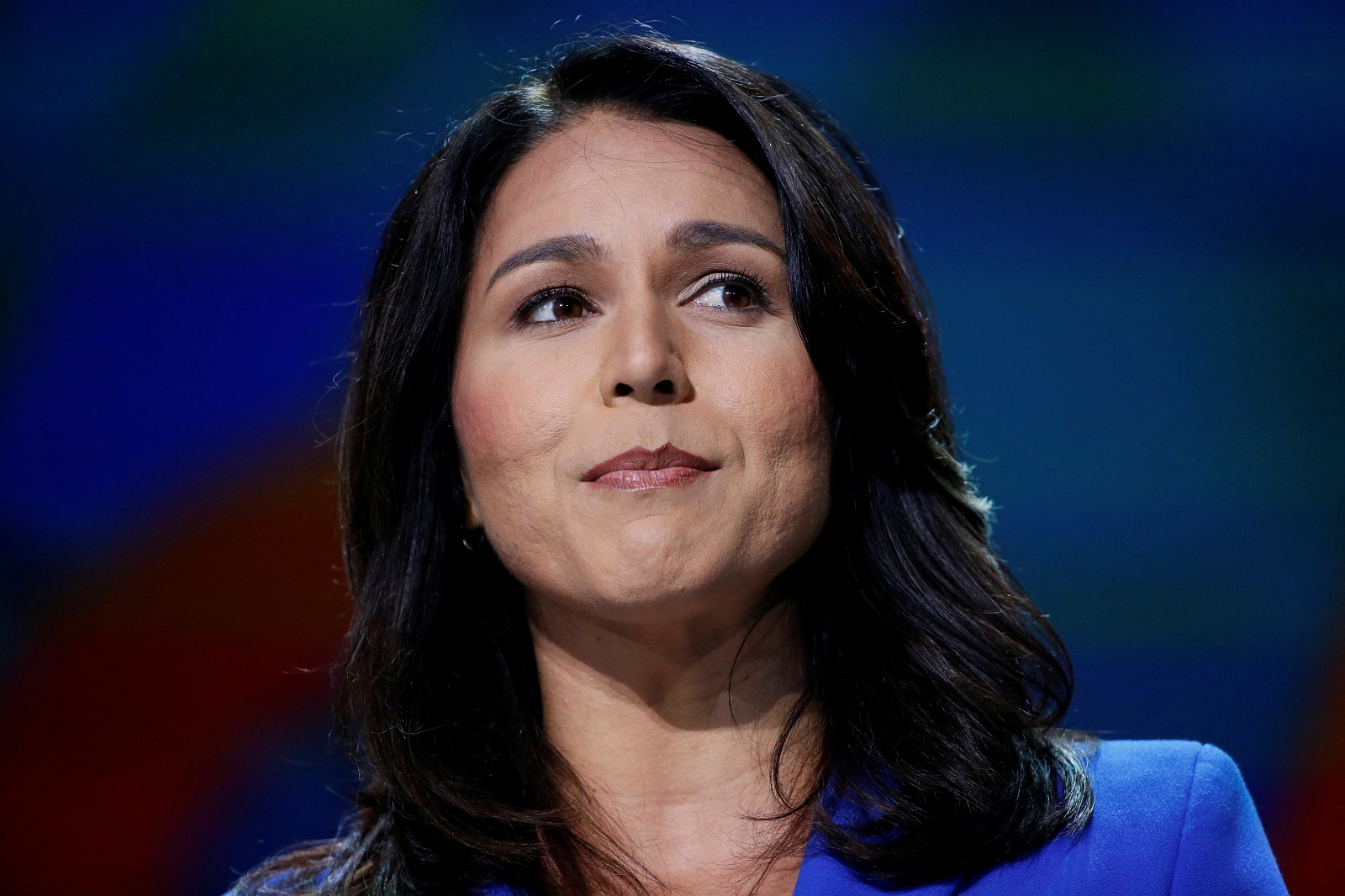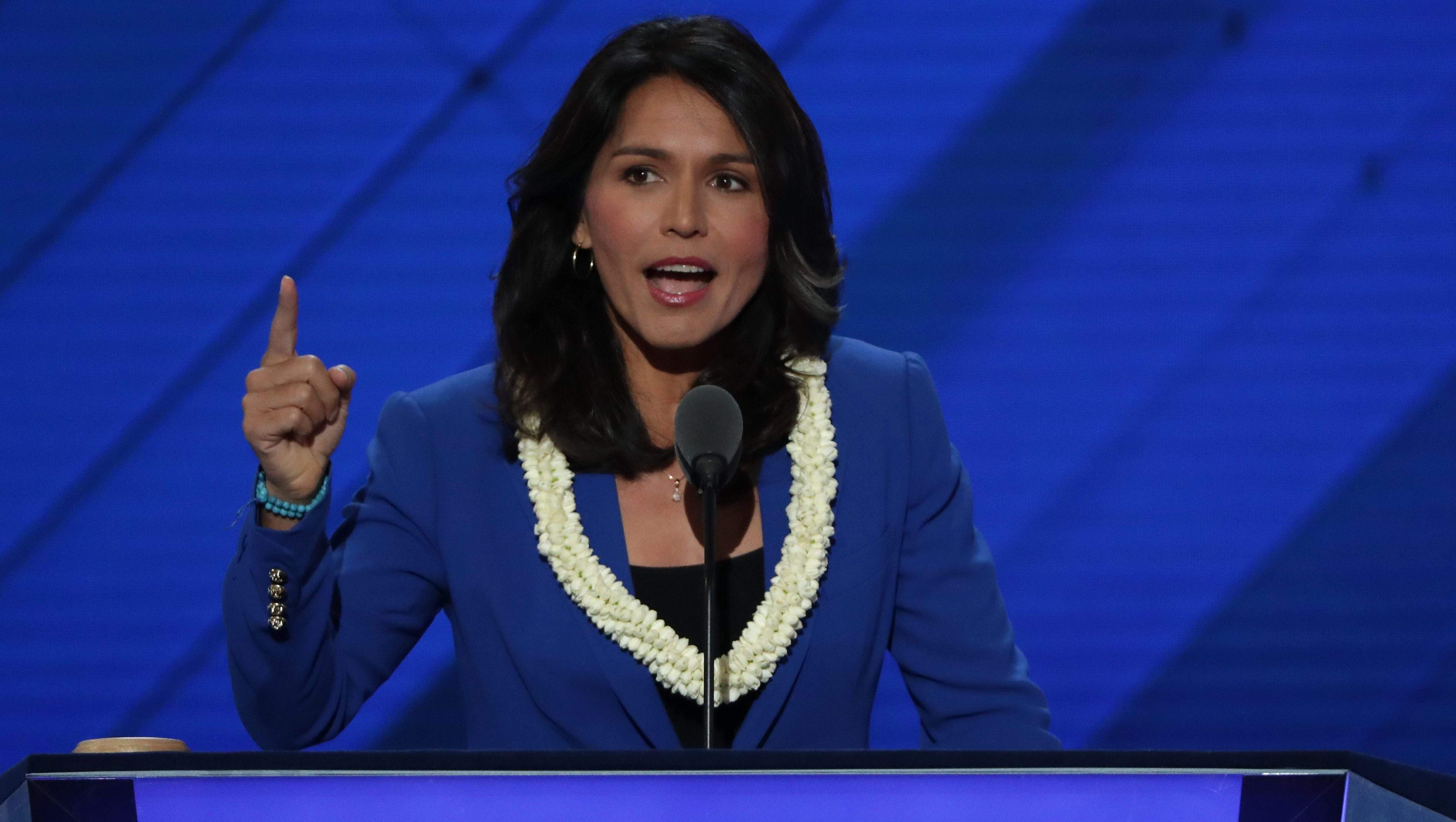Tulsi Gabbard is a multifaceted individual whose identity transcends mere political affiliation. As the first Samoan-American and Hindu member of the United States Congress, her ethnicity has sparked interest and discussion among many. Understanding her unique background provides insight into her perspectives, values, and the diverse influences that shape her approach to governance and public service. Gabbard's journey is not just about her political career; it is also a reflection of the rich tapestry of cultural heritage that informs her worldview. Born in the United States to immigrant parents, she embodies a blend of traditions that resonate deeply within her community and beyond.
Exploring Tulsi Gabbard's ethnicity offers a fascinating glimpse into the intersection of culture, politics, and identity. Her mixed heritage is a source of pride and serves as a bridge between differing communities. Gabbard has often spoken about the importance of inclusivity and understanding in a nation characterized by its diversity. By examining her lineage, we can appreciate how her ethnicity influences her advocacy for various social issues, including peace, justice, and environmental sustainability.
As we delve deeper into the topic of Tulsi Gabbard's ethnicity, we will uncover the various aspects of her background, including her family history, cultural influences, and the significance of her identity in the political arena. This exploration not only honors her journey but also highlights the broader narrative of ethnicity in American politics today.
Read also:Bmf Title Ufc The Ultimate Guide To The Most Prestigious Belt In Mixed Martial Arts
What is Tulsi Gabbard's Background and Biography?
Tulsi Gabbard was born on April 12, 1981, in American Samoa. She is the daughter of Mike Gabbard, a former Hawaii state senator, and Carol Porter. Gabbard's diverse heritage includes Indian, European, and Samoan roots, which she has often highlighted in her campaigns and public speeches. Her upbringing in a multicultural environment has played a significant role in shaping her beliefs and values.
| Personal Details | Bio Data |
|---|---|
| Date of Birth | April 12, 1981 |
| Place of Birth | American Samoa |
| Political Party | Democratic |
| Education | University of Hawaii |
| Occupation | Politician, Author, Activist |
| Known For | First Hindu Congresswoman |
| Ethnicity | Indian, European, Samoan |
How Does Tulsi Gabbard's Ethnicity Influence Her Political Views?
Gabbard has often emphasized how her diverse ethnicity shapes her perspective on various issues. Growing up in a multicultural household, she learned the value of different viewpoints and the importance of empathy. This understanding is reflected in her policy positions, particularly on matters of foreign policy and social justice.
- Advocacy for peace and non-interventionism in foreign affairs
- Support for social equality and civil rights
- Promotion of environmental sustainability and climate action
- Commitment to health care for all and addressing disparities in the system
Her mixed heritage allows her to connect with a broad spectrum of constituents, making her a unique voice in the political landscape. Gabbard frequently draws on her experiences to advocate for policies that promote inclusivity and respect for various cultures.
What Role Does Tulsi Gabbard's Samoan Heritage Play in Her Identity?
The Samoan aspect of Tulsi Gabbard's ethnicity is particularly significant. Growing up in Hawaii, she was immersed in the values and traditions of her Samoan culture. This connection to her roots is evident in her commitment to community service and her focus on family-oriented policies.
Gabbard's Samoan heritage has also influenced her understanding of indigenous rights and the importance of preserving cultural identities. She has actively supported initiatives that empower marginalized communities, showcasing her dedication to equity and justice.
In What Ways Has Tulsi Gabbard Promoted Diversity in Politics?
Tulsi Gabbard's political career is a testament to her commitment to diversity and representation. As the first woman of color and the first Hindu elected to Congress, she has paved the way for future generations of leaders from diverse backgrounds. Gabbard's presence in politics challenges the status quo and encourages other underrepresented individuals to pursue their political aspirations.
Read also:Exploring The Depths Of The American Conservative A Comprehensive Insight
Throughout her time in office, Gabbard has advocated for policies that foster inclusivity, such as:
- Enhancing access to education for minority groups
- Supporting immigrant rights and pathways to citizenship
- Fostering dialogue and understanding among different communities
- Championing anti-discrimination laws
What Challenges Has Tulsi Gabbard Faced As a Woman of Color in Politics?
Despite her achievements, Tulsi Gabbard has faced numerous challenges as a woman of color in a predominantly male political landscape. Her ethnicity has sometimes been used against her, with critics attempting to undermine her credibility based on her background.
However, Gabbard has consistently risen above these challenges, using them as fuel to advocate for change. Her resilience serves as an inspiration for many aspiring politicians, particularly women and individuals from minority backgrounds.
How Has Tulsi Gabbard's Ethnicity Impacted Her Relationships with Constituents?
Gabbard's ethnicity has played a crucial role in her relationship with her constituents. Her ability to relate to various communities has allowed her to forge strong connections and build trust with a diverse electorate. Gabbard often emphasizes the importance of listening and understanding the unique needs of different groups.
Through her outreach efforts, Gabbard has worked to ensure that the voices of marginalized communities are heard in the political arena. Her commitment to inclusivity is evident in her interactions with constituents, fostering a sense of belonging and representation.
What Legacy Will Tulsi Gabbard Leave Regarding Ethnicity in Politics?
As Tulsi Gabbard continues her journey in public service, her legacy regarding ethnicity in politics is already taking shape. She has broken barriers and paved the way for greater representation of diverse voices in governance. Gabbard's commitment to inclusivity and understanding sets a powerful example for future leaders.
In a nation that is constantly evolving, Gabbard's story serves as a reminder of the importance of embracing our differences and fostering dialogue among various cultures. Her impact will be felt for years to come, inspiring others to embrace their unique identities and advocate for a more inclusive political landscape.
In conclusion, Tulsi Gabbard's ethnicity is not merely a facet of her identity but a driving force behind her political beliefs and actions. By understanding her heritage, we can appreciate the diverse influences that shape her approach to governance and her commitment to serving all constituents, regardless of their background.
As we reflect on Gabbard's contributions, we recognize the significance of ethnicity in shaping our collective future—one that embraces diversity and promotes understanding among all individuals.


